Go Lean Commentary
We have all seen-heard the common expressions of exhaustion:
I am sick and tired of being ‘sick and tired’.
Grow up Already, and take care of your own business.
I am no longer accepting the things I cannot change; I am changing the things I cannot accept.
From the very beginning we, the movement behind the 2013 book Go Lean…Caribbean, set-out to correct this blatant flaw in our societal design – Page 3, Paragraph 2:
Many people love their homelands and yet still begrudgingly leave; this is due mainly to the lack of economic opportunities. The Caribbean has tried, strenuously, over the decades, to diversify their economy away from the mono-industrial trappings of tourism, and yet tourism is still the primary driver of the economy. Prudence dictates that the Caribbean nations expand and optimize their tourism products, but also look for other opportunities for economic expansion. The requisite investment of the resources (time, talent, treasuries) for this goal may be too big for any one Caribbean member-state. Rather, shifting the responsibility to a region-wide, professionally-managed, deputized technocracy will result in greater production and greater accountability. This deputized agency is the Caribbean Union Trade Federation (CU).
Enough already! We are exhausted from all this deficiency.
Thanks to the Coronavirus – COVID-19 crisis, the world is re-thinking mono-industrial trappings. It is not good to “put all the eggs in one basket”. See this dramatization in the Appendix VIDEO below.
If you are dependent on tourism, be On Guard, with no COVID-19 vaccine or treatment, travel restrictions and social distancing will be the new normal for a long time still – maybe 18 months. This means 2022 before a return to 2019 levels of economic output.
Those dependent on tourism are hereby being forced to accept changes and make adjustments.
They are being forced to make a change, not just temporarily to get past this crisis, but rather permanent change to fix the “cracks in the foundation”. They want to Keep the Change and complete the diversification pledge.
This is also the narrative for another industry and another country, that of Saudi Arabia. Right now; their society is mono-industrial – oil – but they want to be less vulnerable to the volatility of oil prices and oil revenues. So they want to contemplate other ways to diversify their economy. They want to Keep the Change; see the Appendix below. Their ‘Will to Change’ is strong as they have been Oil Rich for a long time.
Movie Quotes: Trading Places (1983)
“The best way you hurt rich people is by turning them into poor people” – Billy Ray Valentine (Eddie Murphy)
The price of oil dropped to $11.26 a barrel (55 ga1lons) earlier this month; this was the absolute lowest in recent history. Oil revenues cratered for all such Petroleum Exporting Countries (OPEC).
How about us in the Caribbean?
While we do have some OPEC members in our region – 2 of 30 – the vast majority of the Caribbean depend on a different mono-industrial engine: tourism. Likewise, most of our countries too, have failed to deliver any diversification to the industrial offering.
The problem is the mono-industrial engine.
The solution is diversification.
How do we go about manifesting this change, Keeping this Change?
(Saudi Arabia is out of scope for the movement behind the Go Lean book).
The Go Lean book presented strategies, tactics and implementations to pursue this goal. The diversification mission was stated as follows (Page 45):
Build and foster local economic engines. This will diversify the economy, while still enhancing the tourism product, and create a perpetual eco-system for job creation. Whereas certain provisions are impractical for a small-population-market, once that market is super-sized, there must be local solutions. This is best illustrated with the regions undeniable need for food, clothing and shelter. A market-size of 42 million must foster industries on Main Street to produce and supply these basic needs. By fulfilling this mission, a strategic and defensive stance, other aspects of the economy gets the peripheral benefit: jobs, lower costs of living, control of inflation – fostering middle class prospects.
Every month, the movement behind the 2013 book Go Lean…Caribbean present a Teaching Series on a subject germane to Caribbean life. For this April 2020, our focus was on the impact of the Coronavirus on the economic engines in the region. There is now the need to re-focus on the changes this crisis has ushered in and to Keep the Changes that are good and may have always been needed, like industrial diversification. This is entry 5 of 5 for this series, it completes the series and encores the certainty and urgency to flex our economic muscles to “put our eggs in more than one basket”.
The full catalog for this month’s series is listed as follows:
- Keep the Change – Lower Carbon Consumption abating Climate Change
- Keep the Change – Working From Home & the Call Center Model
- Keep the Change – Schools – Primary to Tertiary – making e-Learning work
- Keep the Change – Basic Needs: Cannot just consume; we must produce as well
- Keep the Change – Mono-Industrial Economy: ‘All eggs in 1 basket’
Don’t get it twisted, this Coronavirus-COVID-19 threat means death and devastation for many people and it has devastated the economic engines of most countries. There are no Ands, Ifs or Buts; we are not immune here in the Caribbean. We must abide by best-practices or suffer the consequences. Crises bring challenges, challenges bring changes. Some good, some bad and some ugly.
Yes, we can … Keep the Changes for the good benefits. We have always needed to pursue a diversification of our industrial footprint, to accomplish this finally would be good. This diversification goal was previously identified, qualified and proposed with different Industrial Reboot solutions, spread across 2 years. See this chronological list of previous submissions:
- Industrial Reboots – Ferries 101 – Published June 27, 2017
- Industrial Reboots – Prisons 101 – Published October 4, 2017
- Industrial Reboots – Pipeline 101 – Published October 5, 2017
- Industrial Reboots – Frozen Foods 101 – Published October 6, 2017
- Industrial Reboots – Commercial Gigs 101 – Published February 8, 2018
- Industrial Reboots – Call Centers 101 – Published July 2, 2018
- Industrial Reboots – Prefab Housing 101 – Published July 14, 2018
- Industrial Reboots – Trauma 101 – Published July 18, 2018
- Industrial Reboots – Auto-making 101 – Published July 19, 2018
- Industrial Reboots – Shipbuilding 101 – Published July 20, 2018
- Industrial Reboots – Fisheries 101 – Published July 23, 2018
- Industrial Reboots – Lottery 101 – Published July 24, 2018
- Industrial Reboots – Culture 101 – Published July 25, 2018
- Industrial Reboots – Tourism 2.0 – Published July 27, 2018
- Industrial Reboots – Cruise Tourism 2.0 – Published July 27, 2018
- Industrial Reboots – Reinsurance Sidecars 101 – Published October 2, 2018
- Industrial Reboots – Navy Piers 101 – Published October 9, 2018
- Industrial Reboots – Payment Cards 101 – Published October 11, 2018
- Industrial Reboots – Medical Schools 101 – Published March 1, 2019
- Industrial Reboots – Amusements Parks 101 – Published May 8, 2019
In summary, our Caribbean region needs a diversified industrial landscape to improve our economics, security and governance. This is why we must Keep the Change. emanating from this Coronavirus-COVID-19 crisis.
If the only positive thing that comes from this crisis is a diversified economy, then that would be a good benefit from a bad sacrifice, a good return on a huge investment.
The sacrifices would not have been in vain.
We hereby urge all Caribbean stakeholders to work to reform and transform our homeland. We urge you to lean-in to this Go Lean roadmap to reboot the industrial landscape. This is how we will make our homeland a better place to live, work and play. 🙂
About the Book
The book Go Lean…Caribbean serves as a roadmap for the introduction and implementation of the technocratic Caribbean Union Trade Federation (CU), for the elevation of Caribbean society – for all member-states. This CU/Go Lean roadmap has these 3 prime directives:
- Optimization of the economic engines in order to grow the regional economy to $800 Billion & create 2.2 million new jobs.
- Establishment of a security apparatus to ensure public safety and protect the resultant economic engines.
- Improve Caribbean governance to support these engines, including a separation-of-powers between the member-states and CU federal agencies.
The Go Lean book provides 370-pages of turn-by-turn instructions on “how” to adopt new community ethos, plus the strategies, tactics, implementations and advocacies to execute so as to reboot, reform and transform the societal engines of Caribbean society.
Download the free e-Book of Go Lean … Caribbean – now!
Who We Are
The movement behind the Go Lean book – a non-partisan, apolitical, religiously-neutral Community Development Foundation chartered for the purpose of empowering and re-booting economic engines – stresses that reforming and transforming the Caribbean societal engines must be a regional pursuit. This was an early motivation for the roadmap, as pronounced in the opening Declaration of Interdependence (Pages 11 – 13):
- Whereas all men are entitled to the benefits of good governance in a free society, “new guards” must be enacted to dissuade the emergence of incompetence, corruption, nepotism and cronyism at the peril of the people’s best interest. The Federation must guarantee the executions of a social contract between government and the governed.
xvi. Whereas security of our homeland is inextricably linked to prosperity of the homeland, the economic and security interest of the region needs to be aligned under the same governance. Since economic crimes … can imperil the functioning of the wheels of commerce for all the citizenry, the accedence of this Federation must equip the security apparatus with the tools and techniques for predictive and proactive interdictions.
xxiv. Whereas a free market economy can be induced and spurred for continuous progress, the Federation must install the controls to better manage aspects of the economy: jobs, inflation, savings rate, investments and other economic principles. Thereby attracting direct foreign investment because of the stability and vibrancy of our economy.
Sign the petition to lean-in for this roadmap for the Caribbean Union Trade Federation.
——————-
Appendix VIDEO – Idioms – Don’t put all your eggs in one basket – https://youtu.be/EFkSIuNTdXc
Posted December 2, 2016
Sprachenzentrum Hochschule Nordhausen
- Category: People & Blogs
——————-
Appendix – A new direction for the Saudi Arabian economy
Sub-title: As Saudi Arabia moves to diversify its economy away from oil, its private sector is beginning to truly thrive
 Saudi Arabia finds itself at a significant economic crossroads. Home to the second-largest oil reserves in the world, the kingdom’s economy has been largely defined by the crude industry since drillers first struck oil in Dammam in March 1938. The discovery marked a watershed moment in the nation’s history, sparking an economic boom and propelling Saudi Arabia towards becoming one of the world’s wealthiest countries. Today, the nation is recognised as a global economic powerhouse, sitting among the G20 countries and boasting one of the highest GDPs in the Middle East.
Saudi Arabia finds itself at a significant economic crossroads. Home to the second-largest oil reserves in the world, the kingdom’s economy has been largely defined by the crude industry since drillers first struck oil in Dammam in March 1938. The discovery marked a watershed moment in the nation’s history, sparking an economic boom and propelling Saudi Arabia towards becoming one of the world’s wealthiest countries. Today, the nation is recognised as a global economic powerhouse, sitting among the G20 countries and boasting one of the highest GDPs in the Middle East.
While oil has brought Saudi Arabia great wealth and prosperity, we know one thing for certain – it won’t last forever. Crude is a finite resource and, although there is much debate surrounding the extent of the nation’s vast oil reserves, some estimates predict that supplies will last just 70 more years. This looming time limit – coupled with a global push to create a greener future – has seen Saudi Arabia begin to craft its vision for a post-oil era.
In 2016, Prince Mohammed bin Salman launched the ambitious Vision 2030, a far-reaching reform plan that aims to diversify the economy away from oil, bolstering the private sector and improving employment opportunities for young people. The plan seeks to create a thriving economy where non-oil sectors such as tourism, manufacturing and renewable energy can drive growth, and entrepreneurial activities are encouraged. Small and medium-sized enterprises (SMEs) are a main focus for Vision 2030, with the project seeking to increase the contribution of SMEs to the Saudi Arabian GDP from 20 to 35 percent over the next decade. As the government forges ahead with its diversification drive, Saudi businesses must develop in line with these exciting transformations. A new economic ecosystem is emerging in Saudi Arabia and opportunities are plentiful for those businesses that contribute to its creation.
Burgeoning businesses
With Saudi Arabia ramping up its economic transformation plan, the nation’s private sector is truly coming into its own, and non-oil industries are beginning to drive growth. One such industry is the Saudi insurance market, which has shown great promise in recent years, emerging as one of the largest insurance sectors in the Gulf Cooperation Council (GCC) region. Since first opening its doors to customers in 1986, the Company for Cooperative Insurance (Tawuniya) has grown into one of the nation’s foremost insurance providers, offering more than 60 insurance products – including medical, motor, fire, property, engineering, casualty, marine, energy and aviation insurance – in order to protect Saudi citizens from all manner of risk.
See the full article here: https://www.worldfinance.com/featured/a-new-direction-for-the-saudi-arabian-economy published October 3, 2019 retrieved April 26, 2020.
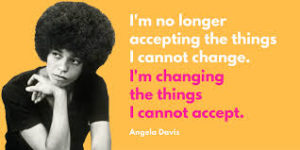

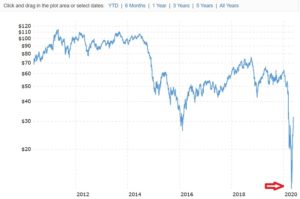
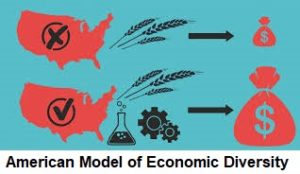
 he strong urging to the Caribbean today is to:
he strong urging to the Caribbean today is to:


 The take-away from this foregoing “ugly” definition is that “basic is ‘plain and simple’”.
The take-away from this foregoing “ugly” definition is that “basic is ‘plain and simple’”. Thanks to the Coronavirus – COVID-19 crisis, the world is re-thinking the fulfillment of these basic needs. Believe it or not, in every jurisdiction Food Service workers are now regarded as Essential Workers. This is a fundamental change – a shift in values – for jobs that had previously been valued as inconsequential or unworthy for most, except the lowest in society; think the new immigrants (
Thanks to the Coronavirus – COVID-19 crisis, the world is re-thinking the fulfillment of these basic needs. Believe it or not, in every jurisdiction Food Service workers are now regarded as Essential Workers. This is a fundamental change – a shift in values – for jobs that had previously been valued as inconsequential or unworthy for most, except the lowest in society; think the new immigrants (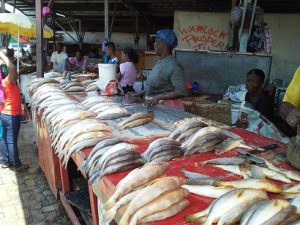 Rather than an insult, we need to be proud to be more technocratic in the fulfillment of our basic needs. “Plain and simple”, we need to:
Rather than an insult, we need to be proud to be more technocratic in the fulfillment of our basic needs. “Plain and simple”, we need to: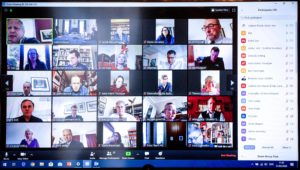 Here’s a stock tip:
Here’s a stock tip:
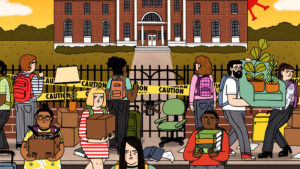
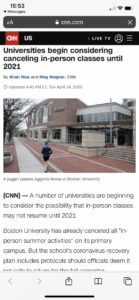 “If it’s going to be online at the same tuition price, then I’ll just
“If it’s going to be online at the same tuition price, then I’ll just  Related:
Related: 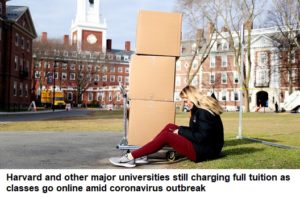 In case you missed it in the foregoing article, this is not a discussion about Public Health or Public Safety. No, this is a discussion about economics and Caribbean students are a commodity. Consider these highlights:
In case you missed it in the foregoing article, this is not a discussion about Public Health or Public Safety. No, this is a discussion about economics and Caribbean students are a commodity. Consider these highlights:
 The interim president of the University of Oklahoma said students will return to campus by the fall semester of 2020.
The interim president of the University of Oklahoma said students will return to campus by the fall semester of 2020. In case you missed it:
In case you missed it: With the U.S. government declaring a state of emergency due to the coronavirus, companies are enabling work-from-home structures to keep business running and help employees follow social distancing guidelines. However, working remotely has been on the rise for a while.
With the U.S. government declaring a state of emergency due to the coronavirus, companies are enabling work-from-home structures to keep business running and help employees follow social distancing guidelines. However, working remotely has been on the rise for a while. Now for the corporate realizations and lessons-learned: perhaps businesses can accomplish Work from Home just as successfully as Work from the Office.
Now for the corporate realizations and lessons-learned: perhaps businesses can accomplish Work from Home just as successfully as Work from the Office. This is the business model for the Go Lean roadmap; while the rest of the world wrestle with the choices of which jobs to bring back to the workplace versus which jobs to allow to WFH, the Caribbean Union Trade Federation wants to present the proposals to bring those WFH jobs here. So maybe now, our Caribbean citizens can find new economic opportunities abroad without actually going abroad or abandoning the homeland.
This is the business model for the Go Lean roadmap; while the rest of the world wrestle with the choices of which jobs to bring back to the workplace versus which jobs to allow to WFH, the Caribbean Union Trade Federation wants to present the proposals to bring those WFH jobs here. So maybe now, our Caribbean citizens can find new economic opportunities abroad without actually going abroad or abandoning the homeland.
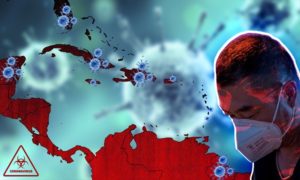
 How do we go about this change? What is the answer?
How do we go about this change? What is the answer?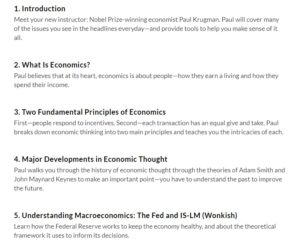
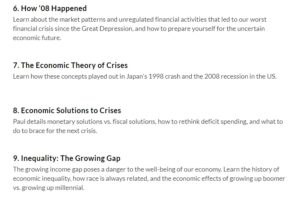
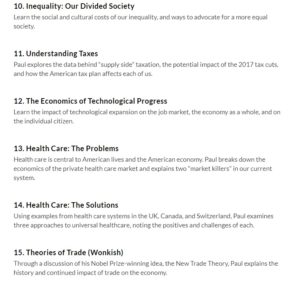
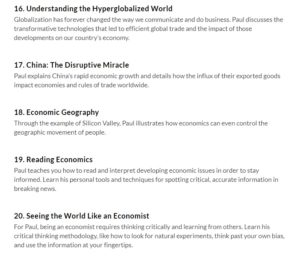
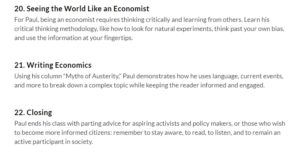
 The whole world must act now to remediate this crisis – flatten the curve – of this
The whole world must act now to remediate this crisis – flatten the curve – of this 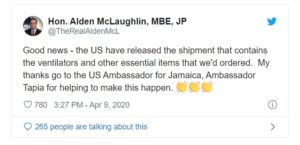
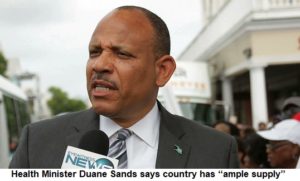
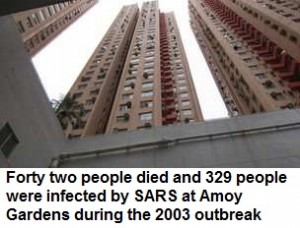 How can a community – the Caribbean region in this case – manage such an epidemiological crisis?
How can a community – the Caribbean region in this case – manage such an epidemiological crisis? The Go Lean book reports that previous Caribbean administrations have failed miserably in managing regional crises. There is no structure for cooperation, collaboration and coordination across borders. This is the charge of the Go Lean/CU roadmap. To effectuate change in the region by convening all 30 Caribbean member-states, despite their historical legacies or governmental hierarchy.
The Go Lean book reports that previous Caribbean administrations have failed miserably in managing regional crises. There is no structure for cooperation, collaboration and coordination across borders. This is the charge of the Go Lean/CU roadmap. To effectuate change in the region by convening all 30 Caribbean member-states, despite their historical legacies or governmental hierarchy.
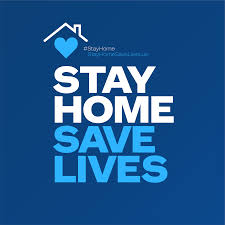
 Netflix and chill …
Netflix and chill … An over-the-top (OTT) media service is a
An over-the-top (OTT) media service is a  No one language is to be considered the default or preferred over the others.
No one language is to be considered the default or preferred over the others. Yes, we can …
Yes, we can …








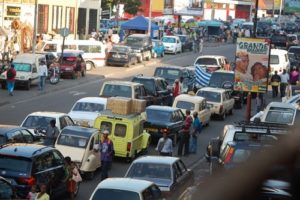

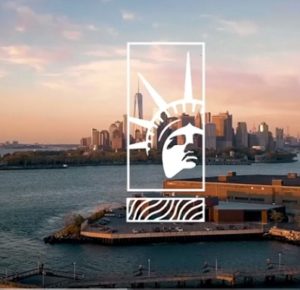 There are role models for us to emulate. Here is one example; we have been to New York City; we have studied the history and the progress of their transportation-focused Public Works. We have even published previous commentaries on the
There are role models for us to emulate. Here is one example; we have been to New York City; we have studied the history and the progress of their transportation-focused Public Works. We have even published previous commentaries on the 

 Got any money? Got any American coins or notes (US Dollars). Notice the engraving: ‘In God We Trust’. What does it mean?
Got any money? Got any American coins or notes (US Dollars). Notice the engraving: ‘In God We Trust’. What does it mean? Don’t get it twisted: American money having a reference to “trusting in God” does not make it divine, or backed by God. There is nothing sacred about American currency, and thusly, it can be replaced or supplanted. This is our dream!
Don’t get it twisted: American money having a reference to “trusting in God” does not make it divine, or backed by God. There is nothing sacred about American currency, and thusly, it can be replaced or supplanted. This is our dream!
 This benefit is so obvious that others have thought of this before …
This benefit is so obvious that others have thought of this before … (Note: The strategy to including the US Territories of Puerto Rico and the US Virgin Islands in the Caribbean Monetary Union is for Electronic Financial Transactions only).
(Note: The strategy to including the US Territories of Puerto Rico and the US Virgin Islands in the Caribbean Monetary Union is for Electronic Financial Transactions only). 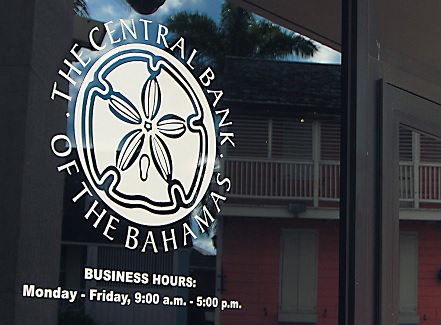 The Central Bank of The Bahamas (CBOB) officially announced yesterday that The Bahamas’ one cent coins as legal currency will be relegated to the annals of history.
The Central Bank of The Bahamas (CBOB) officially announced yesterday that The Bahamas’ one cent coins as legal currency will be relegated to the annals of history.